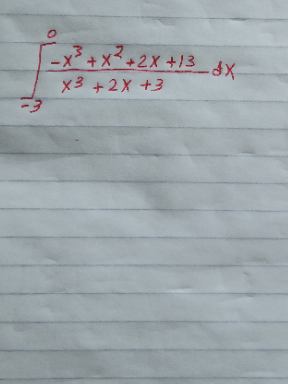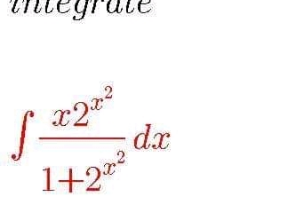
AllQuestion and Answers: Page 1200
Question Number 97153 Answers: 2 Comments: 0

Question Number 97143 Answers: 1 Comments: 0
Question Number 97142 Answers: 2 Comments: 3
Question Number 97139 Answers: 0 Comments: 1
Question Number 97138 Answers: 0 Comments: 0
Question Number 97137 Answers: 1 Comments: 2
Question Number 97136 Answers: 0 Comments: 3
Question Number 97135 Answers: 0 Comments: 1
Question Number 97134 Answers: 0 Comments: 0
Question Number 97132 Answers: 1 Comments: 1
Question Number 97130 Answers: 1 Comments: 0

Question Number 97129 Answers: 0 Comments: 0
Question Number 97125 Answers: 0 Comments: 0
$$\int\left\{\mathrm{xtanx}+\mathrm{ln}\mid\mathrm{cos}\:\mathrm{x}\mid\right\}\:\mathrm{dx} \\ $$
Question Number 97117 Answers: 1 Comments: 0
Question Number 97115 Answers: 1 Comments: 0
Question Number 97114 Answers: 0 Comments: 0
Question Number 97109 Answers: 2 Comments: 0
Question Number 97108 Answers: 4 Comments: 1
Question Number 97091 Answers: 1 Comments: 0
Question Number 97089 Answers: 1 Comments: 0
$${solve}\:\:\int{x}^{{x}} \left(\mathrm{1}+\mathrm{ln}\:{x}\right){dx}\:. \\ $$
Question Number 97088 Answers: 2 Comments: 0

Question Number 97082 Answers: 2 Comments: 0

Question Number 97073 Answers: 3 Comments: 4
Question Number 97068 Answers: 1 Comments: 1

Question Number 97067 Answers: 2 Comments: 1
Question Number 97064 Answers: 0 Comments: 1
Pg 1195 Pg 1196 Pg 1197 Pg 1198 Pg 1199 Pg 1200 Pg 1201 Pg 1202 Pg 1203 Pg 1204
